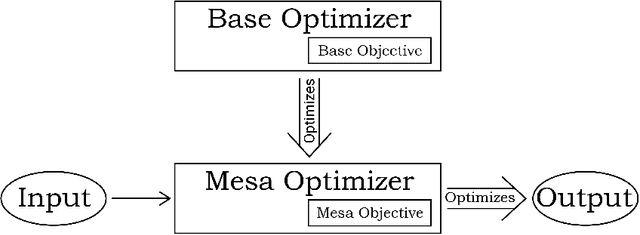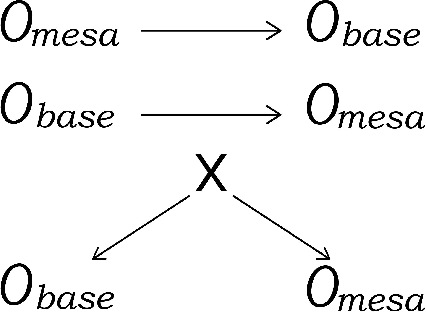Risks from Learned Optimization in Advanced Machine Learning Systems
Paper and Code
Jun 11, 2019


We analyze the type of learned optimization that occurs when a learned model (such as a neural network) is itself an optimizer - a situation we refer to as mesa-optimization, a neologism we introduce in this paper. We believe that the possibility of mesa-optimization raises two important questions for the safety and transparency of advanced machine learning systems. First, under what circumstances will learned models be optimizers, including when they should not be? Second, when a learned model is an optimizer, what will its objective be - how will it differ from the loss function it was trained under - and how can it be aligned? In this paper, we provide an in-depth analysis of these two primary questions and provide an overview of topics for future research.
 Add to Chrome
Add to Chrome Add to Firefox
Add to Firefox Add to Edge
Add to Edge